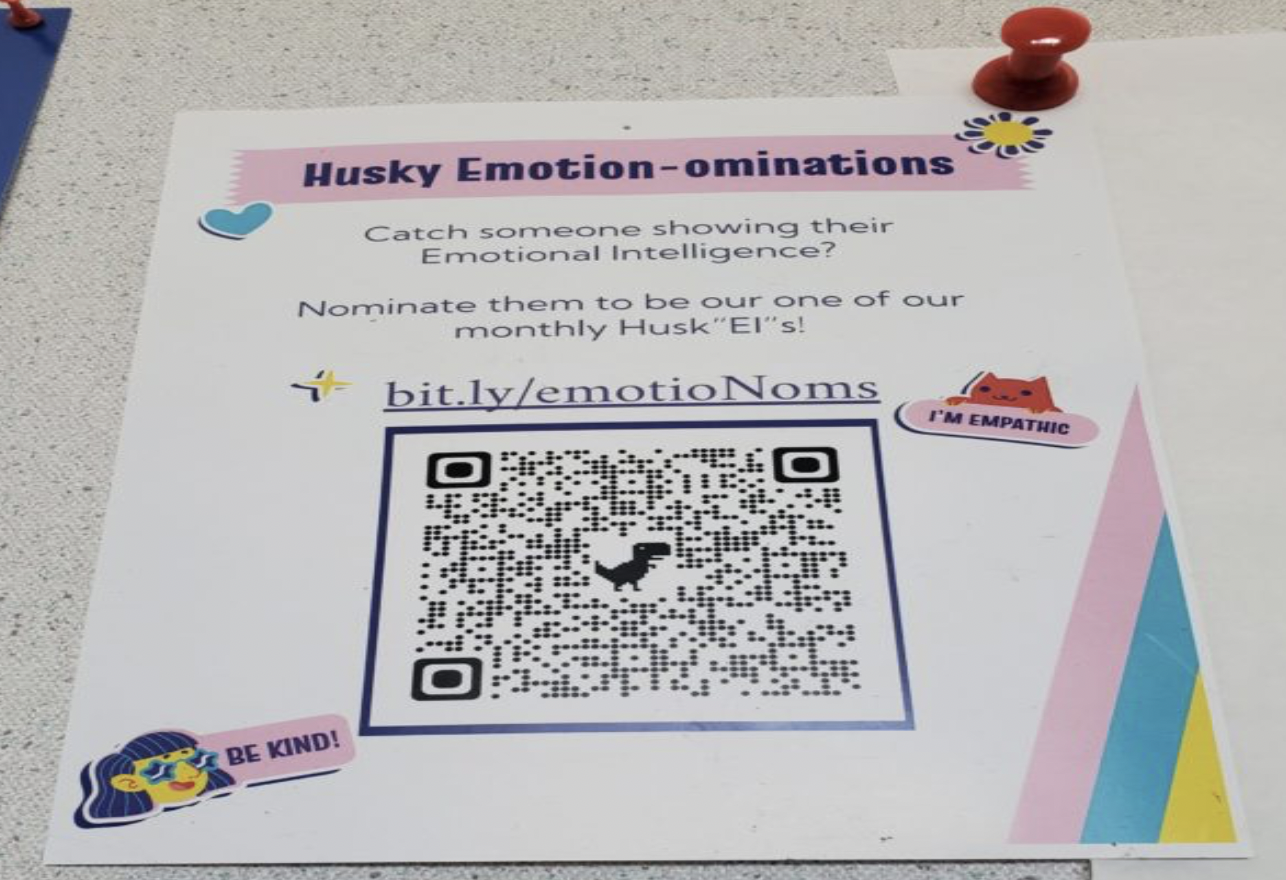Image provided by author.
Teen mental health has been getting worse in the modern day. Both anxiety and depressive symptoms have become more common among adolescents, particularly in the past decade. A number of factors contribute to this, including new pressures from social media and deteriorating sleep schedules. Spending a year under lockdown did not help, as many students felt stressed about themselves or their loved ones contracting COVID-19, adapting to school online, as well as not being able to see friends in person. In an attempt to combat this, Washington High School started periodically giving Emotional Intelligence lessons during Husky Period on Mondays. These lessons are a good first step forward; however, they are missing some critical elements.
Emotional intelligence is a key aspect of mental health. Being able to identify one’s emotions and the emotions of others can help an individual identify when they or their friends may require help. Knowing tools to regulate those emotions can also help people not let their emotions control their lives. However, the EI lessons have not been teaching these skills effectively.
Although we have only had a few lessons, most of them involved simply defining several terms relevant to emotional intelligence and then giving examples or asking the class to give examples. Although having the language to discuss mental health is necessary for the teaching process, these lessons have a notable lack of proper explanations on how to develop emotionally intelligent skills or how to regulate one’s emotions beyond the very basics (such as breathing deeply several times to relax).
Currently, there is also no differentiation between grade levels, so even older students are given the same basic curriculum as freshmen.
Studies do show that sharing personal examples is one of the more efficient ways to teach emotional intelligence. However, the key to sharing which makes it so effective is causing people to be sincerely self-reflective. Currently, our Emotional Intelligence lessons are too short to allow proper self-examination. Students will simply reach for a simple example of the concept being taught, but will not think deeply about that experience.
Additionally, the introduction of Emotional Intelligence lessons, as well as the Wellness Center, is not enough to deal with more serious emotions or mental health problems. The school does not provide much support for students with consistent levels of stress or depression outside of one school psychologist. Furthermore, students can only see them with the referral of a teacher.
In order to improve the lessons, they could be made longer and more in-depth, and give more activities that involve sharing or consideration of emotions. Additionally, there should be different levels of difficulty for different years. Finally, more information should be added about what mental health resources are available for students, both at school and around Fremont or online. This could give students a more meaningful understanding of their emotions, and hopefully give more support to students facing more serious issues.
Olga Vysotsky is a senior at Washington High School. This is her first year at the paper. She was born and raised in Fremont, California. As a journalist, she is interested in covering politics, world affairs, technology, and particularly how they intersect. She is the treasurer of WHS Robotics Club, where she often teaches coding. Outside of tech, she loves to paint, collect coins, and sometimes dabble in calligraphy. Her future plans are to study aerospace engineering at university.

